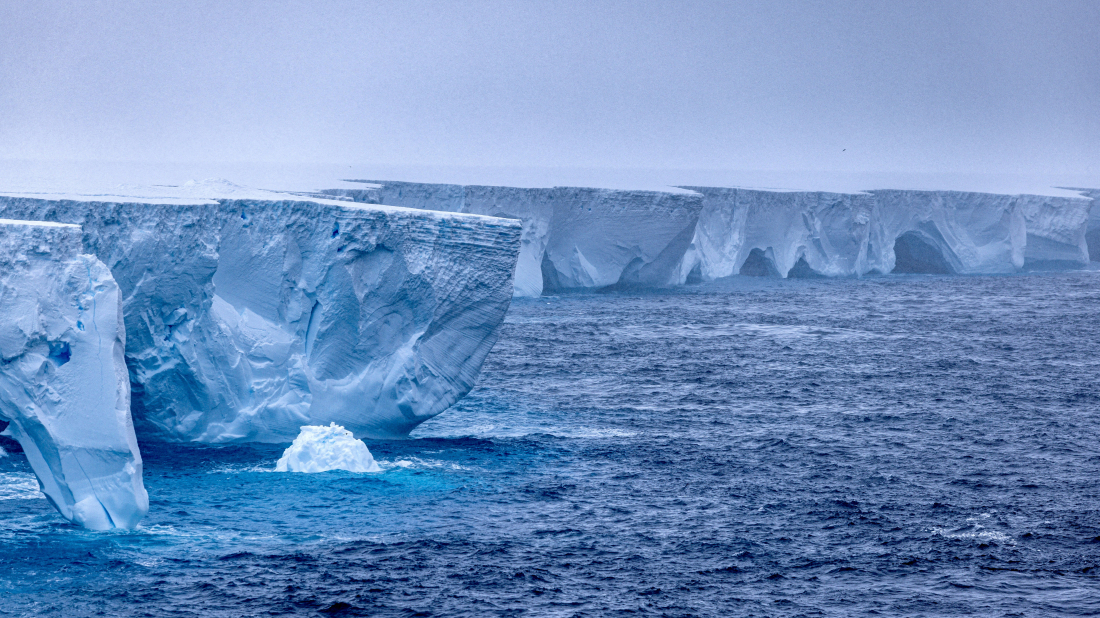Hillary Clinton calls for truth to 'come out' after Epstein testimony
Speaking during a closed-door deposition in New York on Thursday (February), former U.S. Secretary of State Hillary Clinton said she did not “recall...

A study published in Nature on Thursday highlights that the rapid decline of Antarctic sea ice may represent a crucial tipping point for the global climate.
The research, which analysed ice cores, ship logs, and observational data, found that “a regime shift has reduced Antarctic sea-ice extent far below its natural variability of past centuries, and in some respects is more abrupt, non-linear and potentially irreversible than Arctic sea-ice loss.”
Shrinking ice reduces solar reflection, accelerating global warming and weakening the Antarctic Overturning Circulation, which regulates ocean heat, nutrients, and weather patterns.
Nerilie Abram, the study's lead author noted, “Once we start losing Antarctic sea ice, we set in train this self-perpetuating process.”
The loss of ice is already affecting wildlife, including emperor penguins that breed on the ice and krill that feed below it. Warming surface waters are also diminishing phytoplankton populations that absorb large amounts of atmospheric carbon.
Even with efforts to reduce carbon dioxide emissions, the study warns that Antarctic sea ice loss may continue over centuries, emphasizing the urgent need for climate action.
The death toll from heavy rains and flooding in Brazil’s Minas Gerais state has risen to 46, authorities said, with 21 people still reported missing. The storms triggered landslides and widespread flooding, displacing thousands across Juiz de Fora and Uba.
The situation in Cuba was heating up and called for restraint following a deadly incident involving a Florida-registered speedboat off the coast of the Caribbean island, the Kremlin said on Thursday (26 February).
Syria’s economy is showing clear signs of recovery, with economic activity accelerating in recent months, the International Monetary Fund (IMF) said on Wednesday.
The United States has deployed the aircraft carrier USS Gerald R. Ford near Israel as part of a growing military build-up amid tensions with Iran, while governments around the world urge their citizens to leave parts of the region.
Pakistan’s Defence Minister Khawaja Muhammad Asif said on Friday that the country was in an “open war” with neighbouring Afghanistan, declaring that Islamabad’s “cup of patience has overflowed” after overnight clashes in which both sides reported heavy losses.
The death toll from heavy rains and flooding in Brazil’s Minas Gerais state has risen to 46, authorities said, with 21 people still reported missing. The storms triggered landslides and widespread flooding, displacing thousands across Juiz de Fora and Uba.
The administration of U.S. President Donald Trump on Thursday (12 February) announced the repeal of a scientific finding that greenhouse gas emissions endanger human health, and eliminated federal tailpipe emissions standards for cars and trucks.
Tropical Cyclone Gezani has killed at least 31 people and left four others missing after tearing through eastern Madagascar, the government said on Wednesday, with the island nation’s second-largest city bearing the brunt of the destruction.
Rivers and reservoirs across Spain and Portugal were on the verge of overflowing on Wednesday as a new weather front pounded the Iberian peninsula, compounding damage from last week's Storm Kristin.
Morocco has evacuated more than 100,000 people from four provinces after heavy rainfall triggered flash floods across several northern regions, the Interior Ministry said on Wednesday.
You can download the AnewZ application from Play Store and the App Store.

What is your opinion on this topic?
Leave the first comment